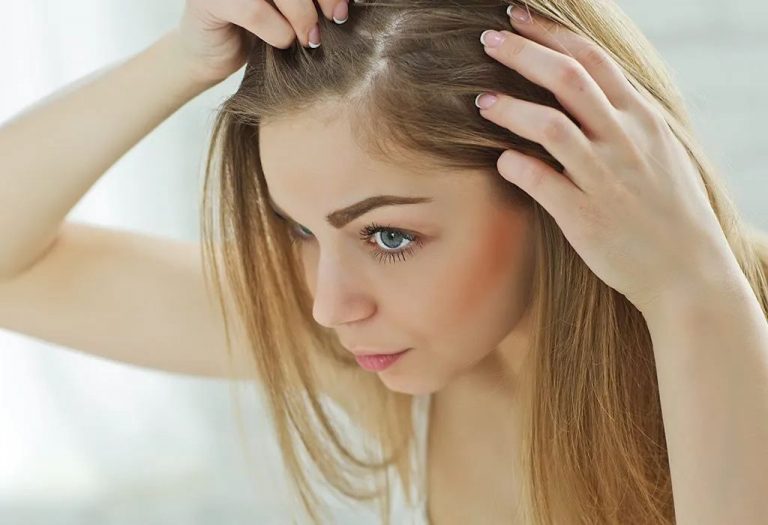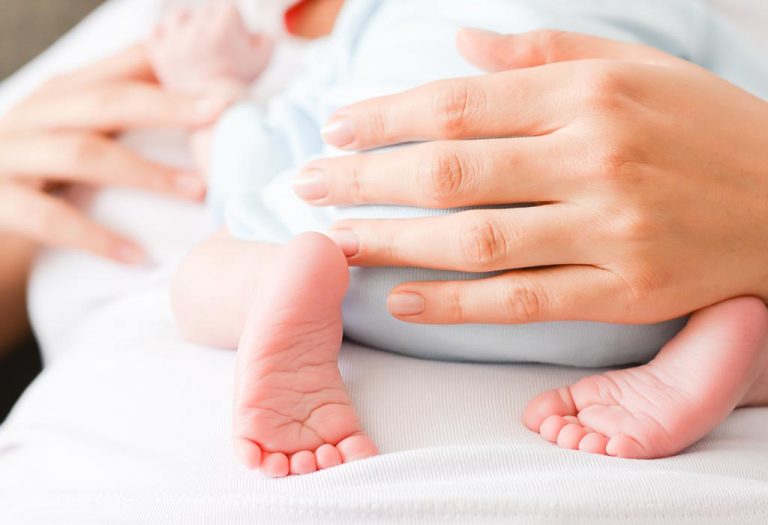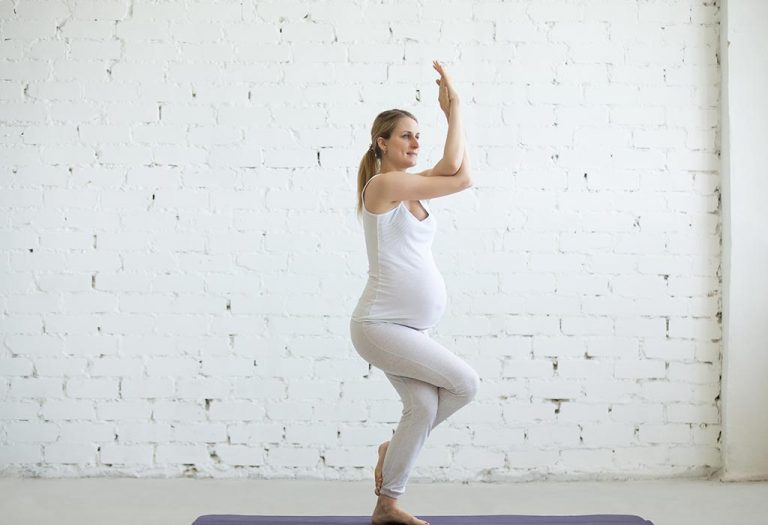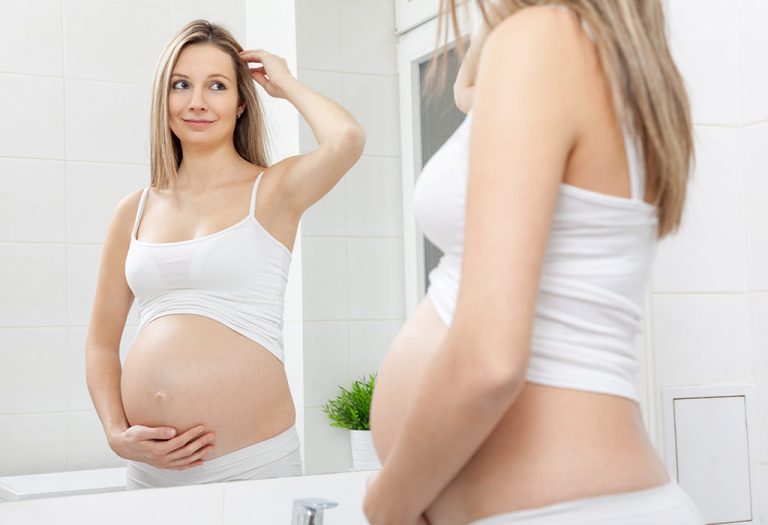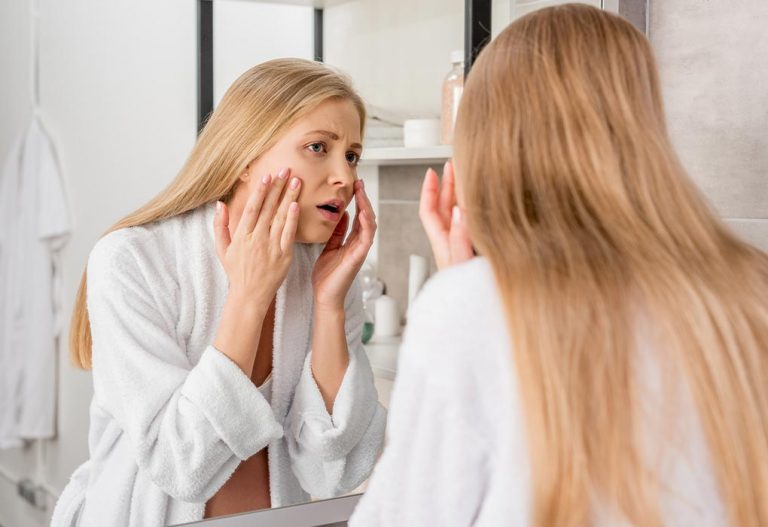Head Lice During Pregnancy – Treatment & Preventive Measures
Pregnancy is one of the most challenging times in a woman’s life. Many hormones are released into the bloodstream, and physical and emotional changes accompany this time. And, if there are other worries, such as head lice, the expectant mother is bound to lose her cool. Lice during pregnancy can be a concerning issue as some treatments may not be safe for the developing baby. Chemical shampoos may contain pesticides, which have been linked to brain damage and autism in the unborn child if used. Therefore, the choice of how to treat lice is essential.
In this article, we will try to answer as many questions as expectant mothers may have about lice infestation, what it means, and how it can be treated without harming the unborn child.
What Are Head Lice?

Head lice refer to small insects that live on the scalp and thrive by feeding on the blood they retrieve by biting the scalp (2). In most cases, lice do not carry any diseases or germs; they simply cause irritation and itching by biting the scalp. The only cause of concern is that adult female lice attach themselves to the root of the hair and lay eggs there within 7 to 10 days of being born. Therefore, they multiply in no time and cause further discomfort.
It is extremely easy to contract a lice infestation, as it spreads via the slightest head-to-head contact in most cases. If lice infest a person, it is essential to ensure that she has no common combs, towels, hats, etc., to prevent the infestation from spreading. At the same time, the affected person may consider taking lice treatment. But, for pregnant women, this might not be an option. Read on to know more.
Is It Safe to Use Lice Treatment During Pregnancy?
After a woman is found to be pregnant, doctors advise her to check before consuming any medication. This is because the medicines have to be vetted and checked to find out if they harm the child. However, in the case of lice, women simply rush to the nearest medical store and ask for a lice treatment shampoo, often forgetting that the shampoo might contain harsh chemicals, which can adversely affect the health of the pregnant woman and the unborn child.
Let’s examine both options for treating head lice. The information below will help you decide to ensure your and your baby’s health is not compromised.
How to Treat Head Lice in Pregnant Women?
Lice treatment while pregnant requires careful consideration and consultation with a doctor to ensure the safety of both the expectant mother and the unborn baby. Head lice infestations can be cured using medical and natural means. Although we have provided information on medical treatment for lice below, it is not recommended as the chemicals could be harmful during pregnancy. However, try the natural means that suit you the most.
1. Medical Treatment
Most lice shampoos and creme rinses are not as effective as the sprays and lotions. A 4% Dimethicone lotion has been approved for use by pregnant and breastfeeding women, so you can procure that from the drugstore if your medical practitioner prescribes it (1). Even then, check the label before buying the product to see any warnings for pregnant women. You might have to use the product twice so that all the remaining louse eggs after the first usage also get killed.
Pregnant mothers must remember that these medicines should be considered only if they first try all the natural remedies and only if the remedies have failed to treat the situation. But even then, it is best to avoid any chemicals during pregnancy.
If you observe that the problem does not go away even after using the lotions, you need to check with your medical practitioner for other ways to treat the infestation. Remember that you should not self-medicate at any cost, as it could be equally harmful to your baby’s health.
Now, let’s look at some natural ways you could treat head lice.
2. Natural Ways to Treat Head Lice
These natural pregnancy-safe lice treatments can treat head lice.
- Tea tree oil in its pure form can get rid of lice without causing any harm to your fetus. You must mix a few drops of the oil in baby shampoo and apply it on your scalp while bathing. Depending on the extent of the infestation, massage it into the scalp. Let it stay for around half an hour, after which you can rinse your hair thoroughly. You can repeat this method as many times as needed.
- Nitpicking is another excellent way to help you get rid of lice. First, divide the scalp into eight manageable areas, then comb each one thoroughly with a lice comb to eliminate as many lice as possible. Then, you can use your fingers for a more thorough search. Repeat this after a week to remove the lice from the hatched eggs.
- Lavender, neem, eucalyptus, and clove oil are also great for combat lice infestation (5).
- Wet combing can also help get rid of lice. After a thorough head wash, comb your hair (you may use a conditioner to smoothen the hair). Then, use a lice comb to remove as many head lice as possible (4). You can also part your hair in several sections and use your fingers to search through and clean the infestation.
When to Consult a Doctor?
If you have tried natural remedies and nothing has worked, you might have to consult the doctor to eliminate the lice infestation. Do mention that you are pregnant so that you get only the medication that is safe for you and the child growing inside your belly.
Tips for Preventing Lice During Pregnancy
Managing head lice while pregnant requires careful consideration due to the potential risks associated with certain treatments. Head lice cannot survive over a day on other surfaces. It needs the scalp to breed on. Nonetheless, after getting rid of the infestation, you may want to try these tips to prevent lice during pregnancy.
- After you are done nitpicking, always clean the comb, tissues, towels, and surroundings. Changing and washing the clothes you were wearing while removing head lice is also a good idea (3).
- After removing the lice in your head, you can kill any remaining lice in the mattresses, pillowcases, and clothes using heat. Just let them bake in the sun for a few hours to kill all remaining lice.
- If the items are big, you can use chemical sprays, which help get rid of the lice on the sofas and couches. Make sure that you get somebody’s help and do not breathe in the pesticides yourself.
- If you observe someone around you scratching their head, take preventive measures as soon as possible to stop the infection from spreading.
FAQs
1. Can head lice harm the unborn baby during pregnancy?
Head lice themselves do not pose a direct risk to the unborn baby. However, scratching the scalp excessively due to itching can potentially lead to skin infections, which may indirectly affect pregnancy. Therefore, it’s essential to manage head lice promptly and effectively.
2. Can head lice infestations during pregnancy affect the mother’s mental health?
Coping with a head lice infestation during pregnancy can be stressful and emotionally challenging for some women. The persistent itching, discomfort, and concerns about treatment safety may contribute to feelings of anxiety or frustration.
Head lice in pregnancy can be uncomfortable and distressing, but it’s crucial to approach treatment cautiously, prioritising the safety of both the mother and the baby. Lice are more of an irritation than a disease and can worsen the mood of an expectant mother. Treating lice is not difficult, but prevention is the best way. However, you must consult a doctor if you cannot treat the infestation yourself.
References/Resources:
1. Head lice; Pregnancy, Birth and Baby; https://www.pregnancybirthbaby.org.au/head-lice-in-children
2. USE OF HEAD LICE TREATMENTS IN PREGNANCY; UK Teratology Information Service; https://uktis.org/monographs/use-of-head-lice-treatments-in-pregnancy/
3. Treatment; Centers for Disease Control and Prevention; https://www.cdc.gov/parasites/lice/head/treatment.html
4. Treatment of head lice during pregnancy; Bumps; https://www.medicinesinpregnancy.org/leaflets-a-z/head-lice/
5. Head Lice and Scabies in Pregnancy and Breastfeeding; NSW Medications in Pregnancy and Breastfeeding Service; https://www.seslhd.health.nsw.gov.au/sites/default/files/groups/Royal_Hospital_for_Women/Mothersafe/documents/headlicescabies20.pdf
Also Read:
Greasy Hair in Pregnancy
Hairfall during Pregnancy
Dandruff while Pregnant
Effective Tips for Hair Care when Pregnant
Was This Article Helpful?
Parenting is a huge responsibility, for you as a caregiver, but also for us as a parenting content platform. We understand that and take our responsibility of creating credible content seriously. FirstCry Parenting articles are written and published only after extensive research using factually sound references to deliver quality content that is accurate, validated by experts, and completely reliable. To understand how we go about creating content that is credible, read our editorial policy here.





